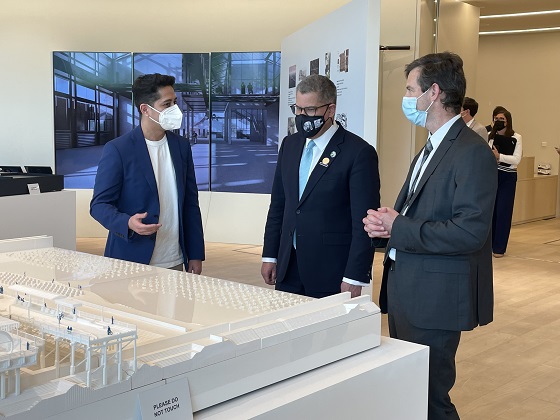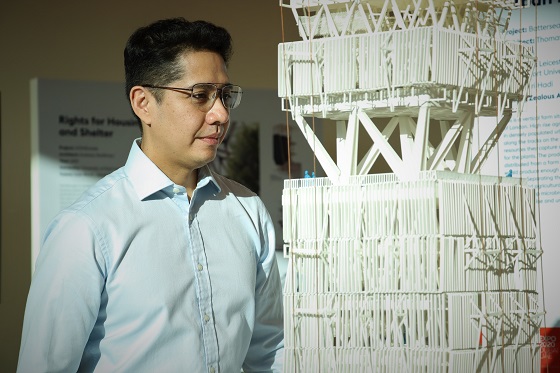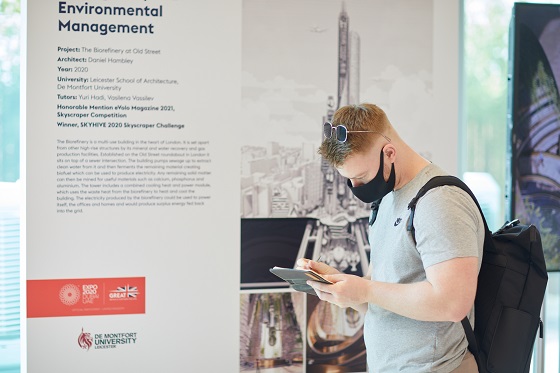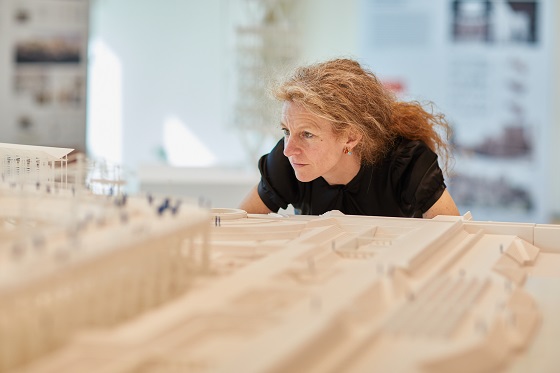Award-winning student designs visualising the future of sustainable architecture have been viewed by the president of the world’s biggest climate change summit.
Alok Sharma served as President at last November’s COP26, event, held in Glasgow, which gathered world leaders together to discuss how to tackle climate change.

And now he has been shown a possible vision of how architecture could help to tackle those same climate issues in an exhibition of work by De Montfort University Leicester (DMU) Architecture students.
The MP for Reading was a guest at the UK Pavilion, where DMU – a founding partner of the Pavilion, which is run by the Department for International Trade – was hosting a showcase as part of a themed week looking at how we will live in the future.
He was shown the designs – many of which have won awards or commendations from the Royal Institute of British Architects – by Simon Bradbury, DMU’s Pro Vice-Chancellor International and Dean for the Faculty of Arts, Design and Humanities, together with Dr Yuri Hadi, senior lecturer in Architecture.

According to the United Nations, by 2050, nearly 70% of the world's population is expected to be living in cities. The four-day DMU exhibition showcased design solutions that address the strain placed on global infrastructure, energy, housing, transport, and the environment as a result of this migration.

Dr Hadi explained the importance of the student designs on show at Expo 2020.
He said: “We believe in solving climate change by understanding the people first. Our approach to architecture is all about understanding the local context, and their challenges."

Dr Hadi continued: "This helps us build our design in a bottom-up approach rather than top-bottom one because we believe architecture should tackle sustainability and social aspects first. We then identify the technology that will addresses the problem into the design.
“Through our architecture courses, we teach our students how they can reduce the carbon footprint in the design and building phase, as well as how we can mitigate pollution and build settlements that are sustainable for the future.”

Exhibits include award-winning project from the SKYHIVE 2020 Skyscraper Challenge, designed by DMU student, Daniel Hambly. The unique design entails office and residential spaces and is set apart by mineral-recovery, biogas-production, and wastewater-recovery facilities.
Other DMU student work included a unique ‘vertical farm’ that could be the answer to food security, while yet another tackled the challenges of overproduction and the need for recycling. By creating a literal ‘waste food mountain’, the design intends to teach people how to manage food waste better, along with composting it.
Posted on Tuesday 18 January 2022